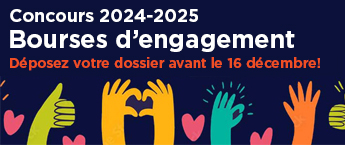Machine learning for science: tackling climate and health challenges
Par
Alex Hernandez-Garcia
Université de Montréal
lundi 26 février 2024, 10:30-11:30 EST, Salle 6214
Pavillon André-Aisenstadt, Université de Montréal, 2920 Chemin de la Tour
Abstract: Science plays a fundamental role in tackling the most pressing challenges for humanity, such as the climate crisis and the threat of pandemics or antibiotic resistance. Meanwhile, the increasing capacity to generate large amounts of data, the progress in computer engineering and the maturity of machine learning methods offer an excellent opportunity to be put at the service of scientific progress. In this talk, I will present an overview of my postdoctoral work during the last three years on machine learning research with an impact on climate and health: materials discovery, molecular modelling, biological sequence design, climate modelling and climate impacts visualisation. In particular, I will focus on my work on machine learning to accelerate scientific discoveries. I will present our recent algorithm for multi-fidelity active learning with GFlowNets, designed to efficiently explore combinatorially large, high-dimensional and mixed spaces (discrete and continuous), inspired by challenges in materials and drug discovery. Finally, I will discuss in more detail the challenging but impactful case of crystal structure generation. I will offer an introduction to GFlowNets and explain how we have adapted this method to incorporate domain knowledge from crystallography, physics and chemistry in the form of hard constraints, to efficiently discover new materials with desirable properties. I will conclude with a discussion of remaining challenges and my research plans to tackle them.
Bio: Alex Hernandez-Garcia est postdoctorant au Mila et à l’Université de Montréal. Il se concentre actuellement sur la recherche sur l’apprentissage automatique pour des applications scientifiques afin de combattre la crise climatique. Auparavant, sa recherche a exploré l’intersection entre l’apprentissage dans les cerveaux et les machines, qui continue d’être une source d’inspiration pour lui.



